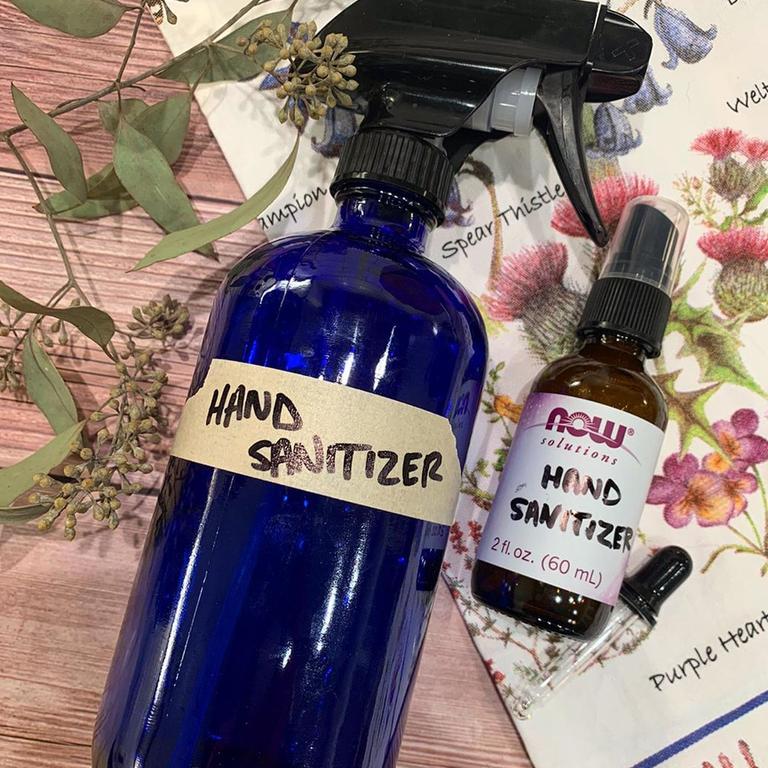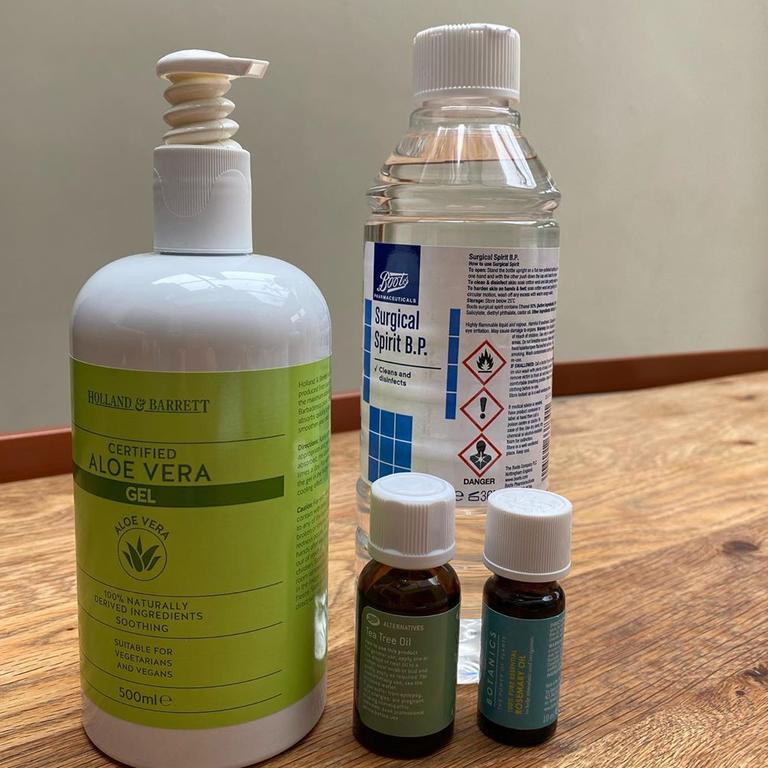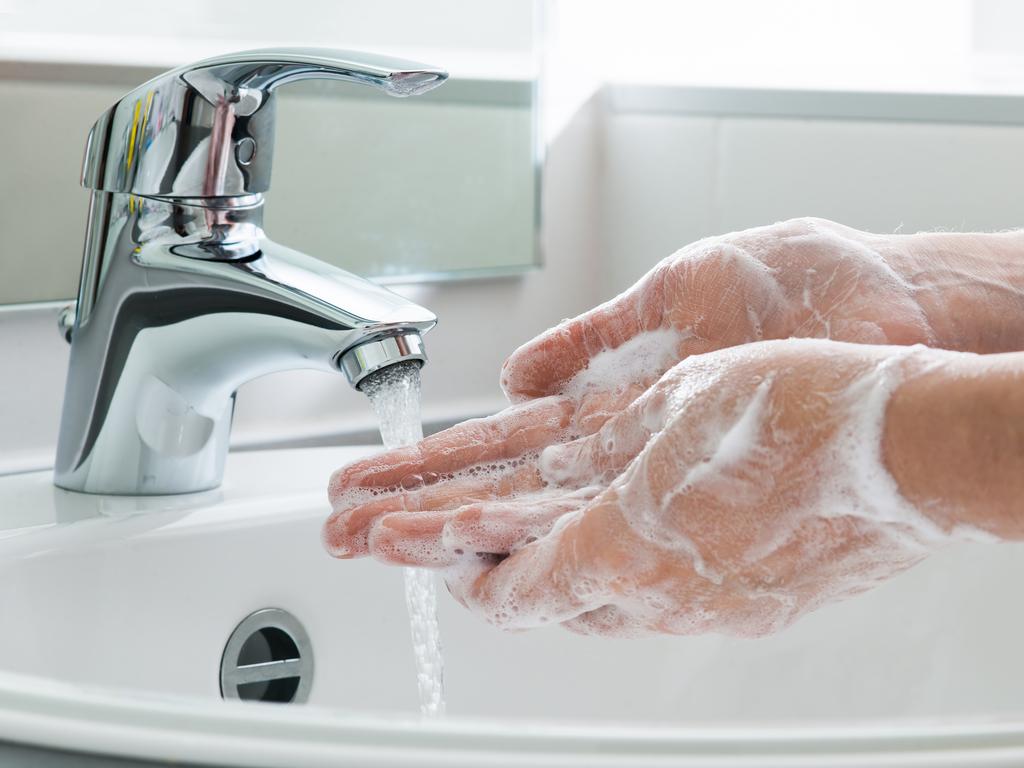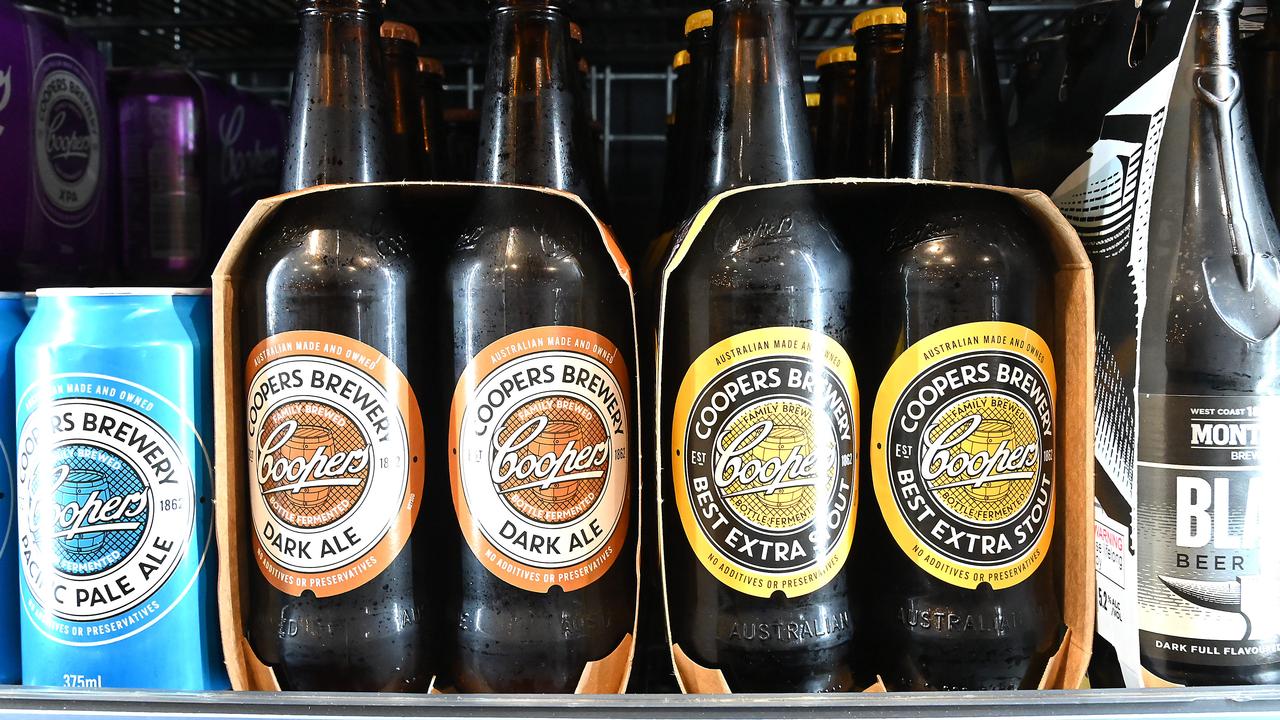Health expert reveals why DIY hand sanitisers aren’t completely effective at combating germs
With demand for hand sanitiser soaring, many are turning to the internet for DIY solutions. But an expert has revealed why at-home methods aren’t a virus failsafe.

Over the past week, Aussies have been raiding chemists and supermarket shelves in a desperate bid to ensure they have supplies to protect themselves amid virus concerns.
While toilet paper and face masks top shopping lists, hand sanitiser is also in high demand – a situation that has seen many turn to the internet in search of DIY solutions.
Creating your own hand sanitiser can be effective, however, an infectious diseases expert said problems can arise if people aren’t using the correct ratios or a reputable site for instructions.
According to Professor Peter Collignon of the Australian National University Medical School, any homemade solution needs contain a minimum of 60 per cent alcohol and a gel carrier.
“The basic formula is two parts isopropyl alcohol to one part gel (aloe vera),” Prof Collignon told news.com.au.
“Using alcohol which hasn’t been diluted won’t be effective,”

RELATED: Aggressive new coronavirus strain found
RELATED: Coronavirus: ‘Like a combination of SARS and AIDS’
He added: “Alcohol also needs to be mixed with a gel to stabilise the molecules and protect your hands from becoming too dry.”
Ethanol (ethyl alcohol) the alcohol found in distilled beverages can also be used when making an at-home hand sanitiser mix.
As a disinfectant, ethanol is considered to be more effective against some types of infectious diseases than isopropyl alcohol.
It is worth noting if substituting ethyl or drinking alcohol to ensure you are using a spirit which is 180 proof or higher.
Prof Collignon said the bottom line is that any hand sanitiser mix needs to contain alcohol and this needs to be diluted to the correct proportions.
“If you are going to make your hand sanitiser, I would recommend following a formula from a reputable site such as the World Health Organisation (WHO).

When it comes to the question of adding essential oils, there’s a negligible benefit, however, the decision to do so won’t cause any problems.
“Some oils such as native Tea Tree oil have antimicrobial properties which can help stop the spread of some bacteria,” Prof Collignon said.
“However, recommendations to add other oils may be simply as a way to help keep the skin hydrated.”
In addition to using hand sanitiser, a product which is ideal for those on-the-go or public situations, Prof Collignon said not to underestimate the value of handwashing.
“Washing your hands with soap and water is very effective. If you can’t get to a bathroom to wash your hands, then hand sanitiser is a good alternative,” he said.
“It isn’t a case of one or the other but making sure you can do both.”

Washing your hands frequently is one of the best ways to stem the spread of coronavirus – or any kind of infectious disease, really.
According to the Centres for Disease Control and Prevention you should wash your hands for at least 20 seconds — or as long as it takes for you to sing Happy Birthday twice.
You should wash your hands as soon as you get home, before and after preparing food, before and after caring for someone that is sick and after using the toilet.



